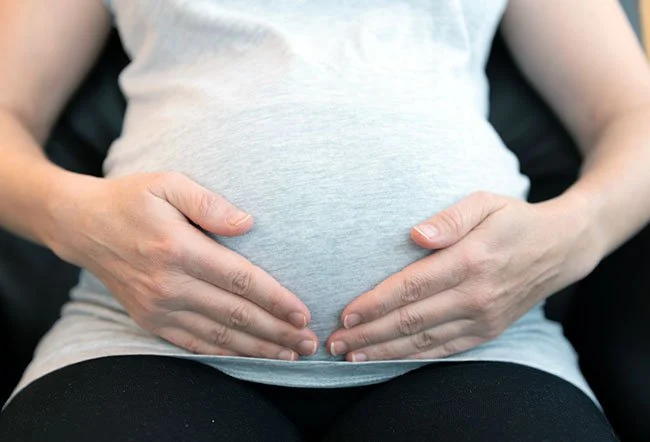What to do if You Notice Your Baby is Not Moving
Are you late in your pregnancy and noticing that your baby is not moving as much as he or she was a few weeks ago? Mothers-to-be may have trouble recognizing if their baby is simply moving less due to less space in the uterus or if this is potential problem. What should you do if your baby is not moving?

Fetal Movements in Pregnancy
Babies move frequently and in different ways during pregnancy. Expectant mothers often feel flutters, kicks, rolling “somersault-type” movements as their babies stretch and change positions in the uterus. Most mothers begin to notice fetal movements around 18-20 weeks and these movements typically continue throughout pregnancy.
Not all babies move with the same frequency as others do. Mothers who have had more than one baby may notice that one baby moves more or less than another. Baby’s movements can also change as the mother approaches her due date.
Do Babies Move Less in Late Pregnancy?
Late pregnancy is a time when there is definitely less room in the mother’s pelvis. This is one reason why many moms notice fewer big rolling-type movements in late pregnancy. Your baby may also be resting for longer periods of time as the pregnancy progresses. According to experts at babycentre.com, babies can rest for as long as 45 minutes at a time as mothers approach their due date.
For both of those reasons, it may seem like your baby is moving less in late pregnancy. However, it is important for mothers to be able to identify if the decreased fetal movement they are noticing is normal or not.
What to do if You Notice Decrease in Baby’s Movement
The Royal College of Obstetricians and Gynecologists (RCOG) has recently released updated guidelines to help mothers recognize signs to look for when decreased fetal movement could be a problem. Here are the new guidelines:
- If a mom is concerned about her baby not moving as much after 28 weeks of pregnancy, she should lay on her left side.
- She should then focus on fetal movements for the next two hours.
- If she does not feel at least 10 or more discrete movements during that two hours, she needs to contact her physician or nurse-midwife as quickly as possible.
The guidelines also include specific instructions for care providers when treating a mom who is reporting reduced fetal movement.
Seeking Help for Decreased Fetal Movement Needed Even Though Most Babies Healthy
RCOG explains that while it is crucial for expectant moms to seek help when they notice their baby is not moving as much, 70% of the time with one episode of reduced fetal movement, the baby turns out to be fine.
Lead author of the revised guideline, Melissa Whitworth states that,
“Being aware of babies’ movements is something that Mums can do to monitor the health of their unborn child. A reduction in movements can mean that the baby is not well in the womb and a very small proportion of these babies need to be delivered urgently. This guideline will hopefully help clinicians to provide high quality care for women with reduced fetal movements.”